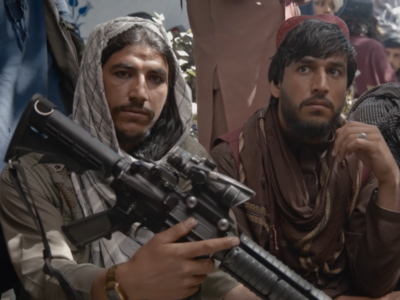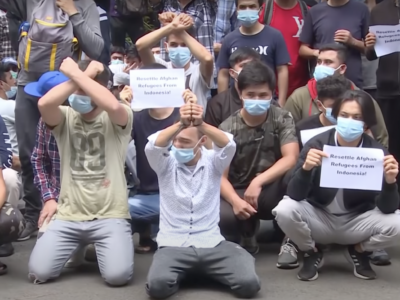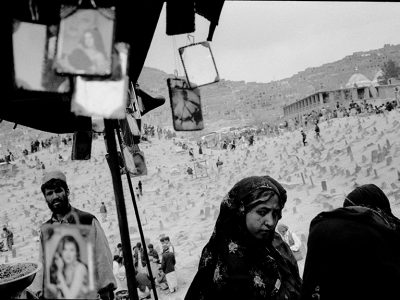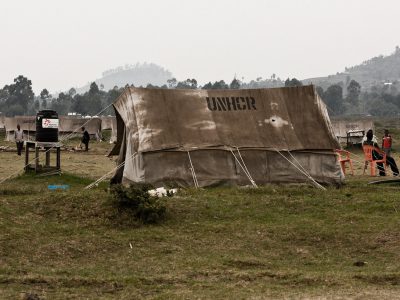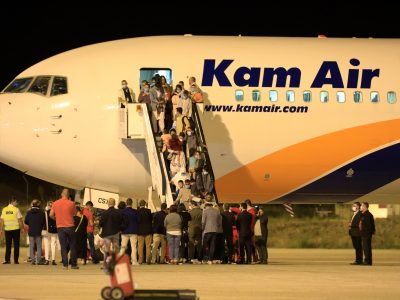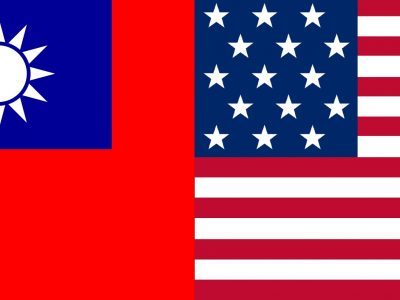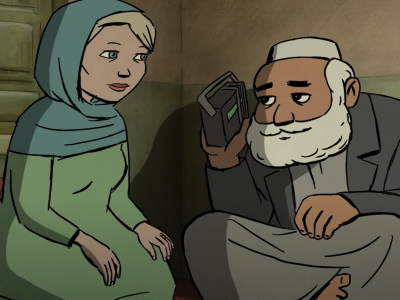
Image by Giovana Fleck, used with permission
The world was transfixed with horror in August 2021 when the abrupt and disorganized withdrawal of US troops from Afghanistan allowed a newly empowered Taliban regime to overthrow the government and take over the nation — threatening decades of progress around human rights and women's empowerment.
Many still remember the Taliban's infamous cruelties when they held power from 1996 to 2001. The regime implemented strict, literalist Islamic laws and enacted severe repressive policies toward women, such as banning education for women and girls, confining women to their homes unless accompanied by a male family member, and strictly regulating women's dress and appearance. They also dismantled the nation's justice system and conducted public beatings, amputations, and killings against those who spoke against them or broke their rules.
For over 20 years, NATO, led by the United States, occupied Afghanistan. The strategic mission behind this occupation was rarely clear, with some top military officials calling it a “strategic failure.” Strategic goals focused on counter-terrorism and the eradication of the last traces of Al-Qaeda, but in practice, NATO and the US, as well as international organizations, development agencies and philanthropies poured money into projects that supported state-building, peace preservation, and establishing democratic governance systems, as well as development projects across all social sectors, from education to media, from health to culture.
Afghans made massive strides between 2001 and 2021 toward universal education, gender equity, and human rights. During this period, the private and public spheres were desegregated, healthcare was equalized for all genders, and women were able to attain education, pursue careers, and leave their homes independently. Freedom of expression and speech flourished, buoying the country's activism and art scenes, and a secular legal system was restored. While the country still had plenty of room for improvement, it had made undeniable progress. Much of this progress has already been eroded since the Taliban officially took power on August 15.
Read Global Voices coverage of Afghanistan
Since the takeover, those who cooperated with NATO forces, championed democratic or progressive values, or spoke out against the Taliban regime are facing significant risks, from loss of employment to targeted killing. These threats led to a huge rush on the Kabul airport in August as people tried to flee for their lives in anticipation of the Taliban's takeover.
News outlets around the world were inundated with graphic video clips and gruesome stories detailing this mass exodus and the chaotic fallout of this takeover.
Many media outlets have extensively covered what this crisis means for Afghan citizens and their rights — particularly for women. Global Voices has covered Afghanistan's successes, trials, and tragedies for many years and is now focusing on the impact of this recent upheaval at a regional and global scale. The effects of this crisis are spreading beyond Afghanistan, and include topics such as migration, trade, regional geopolitical stability, development aid flows, and threats to a US-led world order. In our special coverage, “Afghanistan's Great Dispersal,” we explore how the cataclysm in Afghanistan is affecting communities worldwide. From disinformation campaigns in North Macedonia to politics around accepting refugees in Uganda and the implications of US military failure for its unofficial alliance with Taiwan, this humanitarian crisis has shaken up global geopolitical and social politics.
For more information about the global ramifications of this tragedy, please see the following articles:
Stories about Afghanistan's Great Dispersal
Museum of Russian anti-war street art opens online
Russian anthropologist Alexandra Arkhipova and her colleagues have been collecting examples of anti-war street-art — stickers, graffiti, leaflets, and complex installations — for 1.5 years, from 48 Russian cities.
Central Asia’s fears of rising militancy in Afghanistan as Moscow invades Ukraine
Since the Taliban takeover in August 2021, the three Central Asian states that border Afghanistan intended to defend their borders through security reinforcement and diplomacy, primarily relying on Russian initiatives.
Police violently break up Afghan refugee protest in Indonesia
Some refugees in Indonesia have been in limbo for more than 10 years. Protesters gathered outside the UNHCR building in Medan to call for resettlement and demand better living conditions.
Afghan women: Finally a book that speaks from inside its society
A female Afghan writer has just released "The Mountains Have Witnessed: The Story of a Girl Who Dared for More", a book that tells the story of Afghan women.
The Uyghur issue, China’s greatest fear, is looming in Afghanistan
As the Taliban and China seem to strengthen their ties, the tragedy of the Uyghurs imprisoned in China's so-called re-education camps could prove to be a diplomatic stumbling block.
Afghan refugees might complicate Ugandan politics
While accepting the moral imperative of accepting refugees, there are concerns about Uganda’s human rights track record and the US government’s continued dealings with the Museveni administration.
Disinformation campaign intensifies as Afghan refugees arrive in North Macedonia
The first group of 149 Afghan citizens arrived in Skopje on August 30. While the government and civil society welcome the refugees, right-wing nationalists exploit their plight to spread disinformation and hate.
The plight of Afghan women under the new Taliban regime
With the Taliban taking control of Kabul, women in Afghanistan are faced with the bleak prospect of a return to a society that denies their rights.
What’s wrong with the political analogy comparing Taiwan to Afghanistan?
Following the withdrawal of the U.S. forces from Afghanistan, Chinese commentators comparing Taiwan with Kabul have flooded social media questioning the credibility of the United States' commitment to Taiwan.
Will an award-winning animated film about a Czech woman in Kabul change how Czechs perceive Afghanistan?
A Czech animation movie won a major award for depicting a love story between a Czech woman and an Afghan man. But can this movie change perceptions about Afghanistan?



